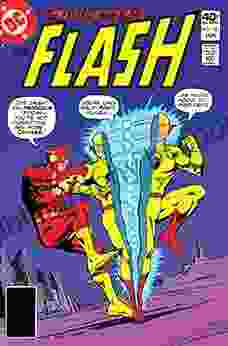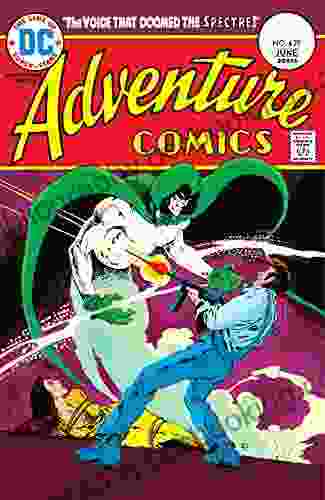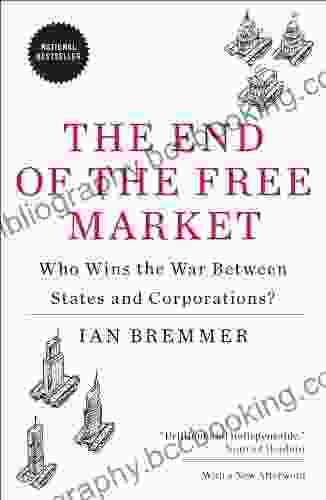The End of the Free Market: Unlocking a New Era of Growth and Prosperity

In an era marked by economic inequality, rising nationalism, and environmental degradation, the traditional free market model is facing unprecedented scrutiny. The End of the Free Market, a groundbreaking book by renowned economist Desmond Hawkins, argues that the current economic system has reached its limits and proposes a transformative vision for a more just and sustainable future.

4.2 out of 5
| Language | : | English |
| File size | : | 741 KB |
| Text-to-Speech | : | Enabled |
| Enhanced typesetting | : | Enabled |
| Word Wise | : | Enabled |
| Print length | : | 243 pages |
| Screen Reader | : | Supported |
The Critique of the Free Market
Hawkins contends that the free market model, with its emphasis on unfettered competition and minimal government intervention, has led to a number of systemic problems:
- Growing Inequality: The pursuit of profit maximization has widened the gap between the wealthy and the poor, creating social unrest and instability.
- Environmental Degradation: The constant drive for economic growth has resulted in unsustainable resource consumption and pollution, jeopardizing the planet's future.
- Financial Instability: Unregulated financial markets have fostered excessive risk-taking and speculation, leading to periodic crises that damage the real economy.
- Economic Stagnation: The relentless focus on short-term profits has stifled innovation and investment in long-term growth, leading to sluggish economic performance in many countries.
A New Economic Vision
Hawkins proposes a fundamental rethinking of the free market model, centered on the following principles:
- Sustainable Development: The economy must be managed in a way that balances economic growth with environmental conservation.
- Social Justice: The distribution of wealth and opportunities must be more equitable to promote social cohesion and economic stability.
- Government Intervention: The government has a crucial role to play in regulating the market, promoting competition, and addressing social and environmental challenges.
- International Cooperation: The interconnectedness of the global economy demands collaboration between nations to address common challenges such as climate change and financial instability.
Key Policy Proposals
The End of the Free Market outlines a comprehensive set of policy proposals to implement the new economic vision, including:
- Carbon Tax: A tax on carbon emissions to incentivize businesses and consumers to reduce their carbon footprint.
- Wealth Tax: A progressive tax on wealth to reduce inequality and generate public revenue for social programs.
- Public Investment: Increased government investment in infrastructure, education, and research and development to promote long-term economic growth.
- Financial Regulation: Stronger regulation of financial institutions to prevent excessive risk-taking and ensure financial stability.
- Global Cooperation: Enhanced international cooperation to address global economic, social, and environmental challenges.
The Way Forward
Hawkins concludes The End of the Free Market with a call to action for a fundamental transformation of our economic system. He argues that by embracing a new economic paradigm that prioritizes sustainability, equity, government intervention, and international cooperation, we can create a more prosperous, just, and sustainable future for all.
This book is a must-read for anyone concerned about the challenges facing our global economy and seeking a path towards a more sustainable and equitable future. The End of the Free Market is a thought-provoking and transformative text that will undoubtedly shape economic discourse and policymaking for years to come.
About the Author
Desmond Hawkins is a renowned economist and professor at the University of Cambridge. He has served as an advisor to governments and international organizations, and his research on economic development, inequality, and environmental sustainability has been widely published in academic journals and the popular media.
Reviews
“The End of the Free Market is a brilliant and timely analysis of the failures of the current economic system and a roadmap for a more sustainable and just future.”
Paul Krugman, Nobel Prize-winning economist
“Hawkins provides a compelling critique of the free market model and offers a comprehensive set of policy proposals for a more humane and sustainable economy.”
Mariana Mazzucato, author of The Value of Everything
4.2 out of 5
| Language | : | English |
| File size | : | 741 KB |
| Text-to-Speech | : | Enabled |
| Enhanced typesetting | : | Enabled |
| Word Wise | : | Enabled |
| Print length | : | 243 pages |
| Screen Reader | : | Supported |
Do you want to contribute by writing guest posts on this blog?
Please contact us and send us a resume of previous articles that you have written.
 Book
Book Novel
Novel Page
Page Chapter
Chapter Text
Text Story
Story Genre
Genre Reader
Reader Library
Library Paperback
Paperback E-book
E-book Magazine
Magazine Newspaper
Newspaper Paragraph
Paragraph Sentence
Sentence Bookmark
Bookmark Shelf
Shelf Glossary
Glossary Bibliography
Bibliography Foreword
Foreword Preface
Preface Synopsis
Synopsis Annotation
Annotation Footnote
Footnote Manuscript
Manuscript Scroll
Scroll Codex
Codex Tome
Tome Bestseller
Bestseller Classics
Classics Library card
Library card Narrative
Narrative Biography
Biography Autobiography
Autobiography Memoir
Memoir Reference
Reference Encyclopedia
Encyclopedia Roger Craig
Roger Craig Ian Durston
Ian Durston Timothy J Minchin
Timothy J Minchin Isadora Duncan
Isadora Duncan Jessie Cooke
Jessie Cooke Matt Vincent
Matt Vincent Michael Woodford
Michael Woodford Jeremy Ford
Jeremy Ford J Morgan Mcgrady
J Morgan Mcgrady Jeffrey W Hayzlett
Jeffrey W Hayzlett J D Robb
J D Robb Viktorija Todorovska
Viktorija Todorovska J G Heck
J G Heck Ira J Chasnoff
Ira J Chasnoff Ian Ross Robertson
Ian Ross Robertson Ken Hultgren
Ken Hultgren Ivy Rose
Ivy Rose J E Reed
J E Reed Ilan Dvir
Ilan Dvir J R Harris
J R Harris
Light bulbAdvertise smarter! Our strategic ad space ensures maximum exposure. Reserve your spot today!

 Carson BlairHow to Fix Your Academic Writing Trouble: A Comprehensive Guide to Overcome...
Carson BlairHow to Fix Your Academic Writing Trouble: A Comprehensive Guide to Overcome...
 Ian MitchellThe Enchanting World of Store Phillips: A Literary Journey into the Heart of...
Ian MitchellThe Enchanting World of Store Phillips: A Literary Journey into the Heart of... Floyd PowellFollow ·19.6k
Floyd PowellFollow ·19.6k Darrell PowellFollow ·9.2k
Darrell PowellFollow ·9.2k Dion ReedFollow ·13k
Dion ReedFollow ·13k Terry PratchettFollow ·6.4k
Terry PratchettFollow ·6.4k James JoyceFollow ·5.4k
James JoyceFollow ·5.4k Derek BellFollow ·2.9k
Derek BellFollow ·2.9k Jonathan FranzenFollow ·15.4k
Jonathan FranzenFollow ·15.4k Greg FosterFollow ·5.2k
Greg FosterFollow ·5.2k

 Luke Blair
Luke Blair101 Amazing Facts About Australia: A Journey Through the...
A Literary Expedition Unveiling the Treasures...

 Harry Hayes
Harry HayesWitness the Velocity and Legacy of the Scarlet Speedster:...
Delve into the Lightning-Charged...

 Stan Ward
Stan Ward101 Amazing Facts About Ancient Egypt: Unraveling the...
: A Timeless Realm of Wonder Ancient Egypt, a...

 Stephen King
Stephen KingEscape into Adventure: Unveil the Secrets of Adventure...
In the annals of comic book history,...

 Forrest Blair
Forrest BlairThe Oxford Dog Training Company Presents: A Holistic...
In the realm of dog...
4.2 out of 5
| Language | : | English |
| File size | : | 741 KB |
| Text-to-Speech | : | Enabled |
| Enhanced typesetting | : | Enabled |
| Word Wise | : | Enabled |
| Print length | : | 243 pages |
| Screen Reader | : | Supported |










